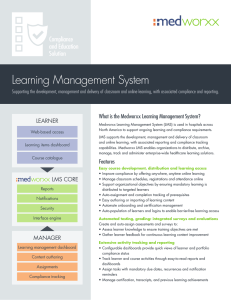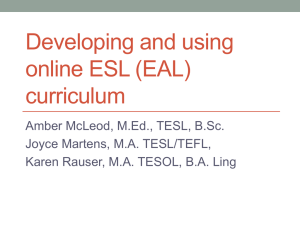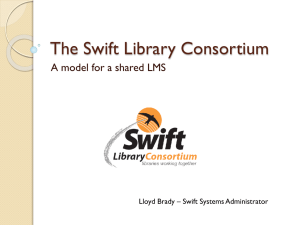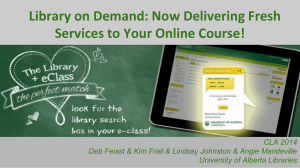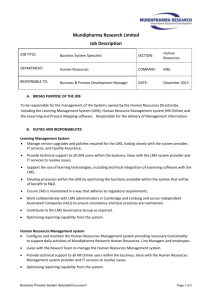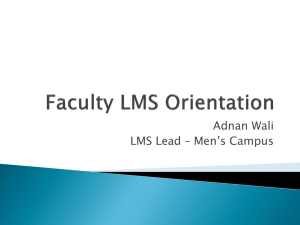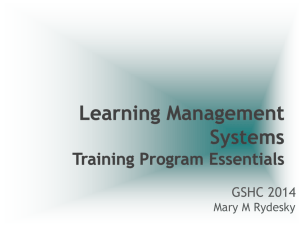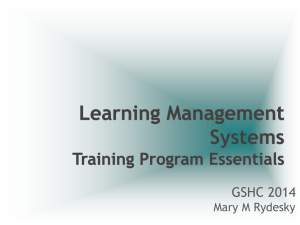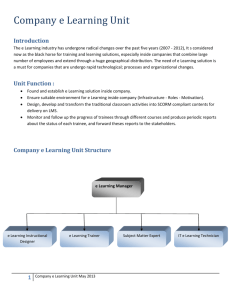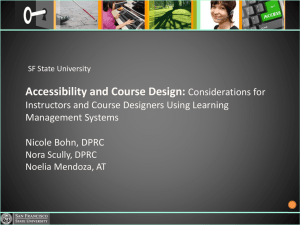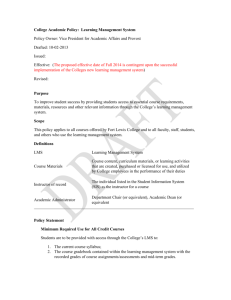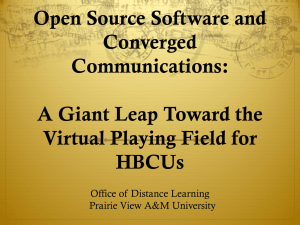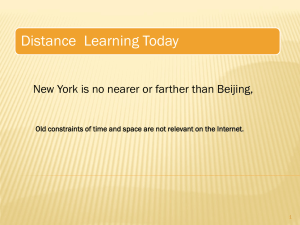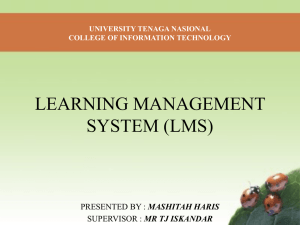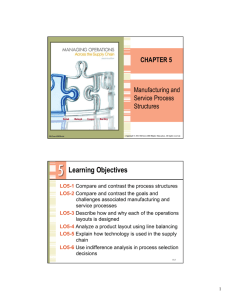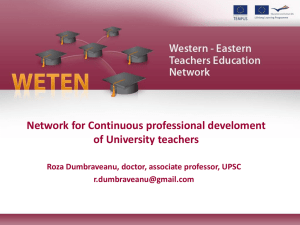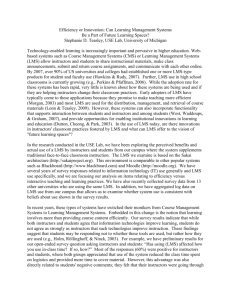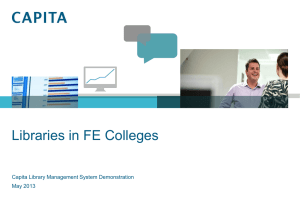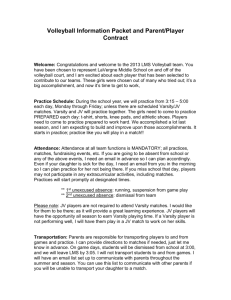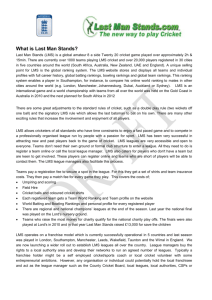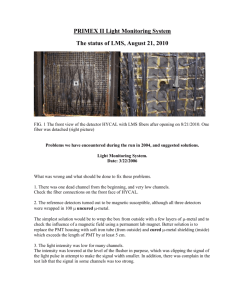PowerPoint Lecture 4 - Utah State OpenCourseWare
advertisement
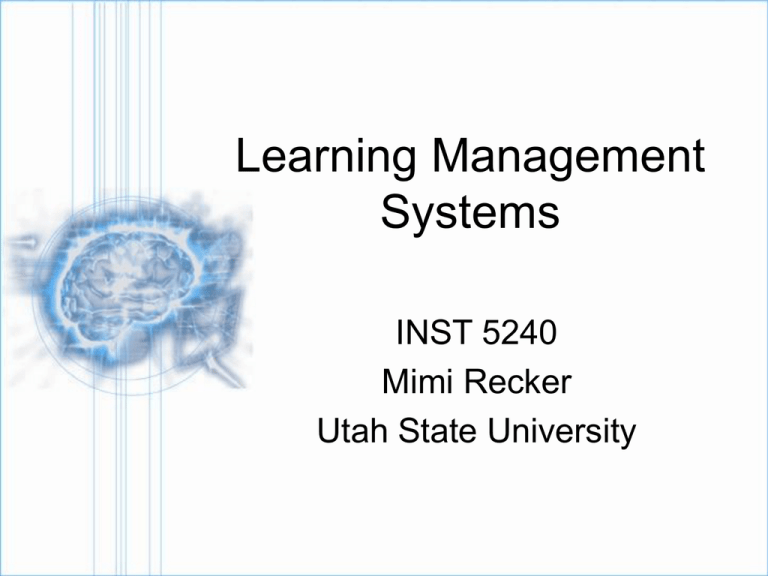
Learning Management Systems INST 5240 Mimi Recker Utah State University Learning management systems o ACADEMIC: o o o o ENTERPRISE: o o o o o WebCT BlackBoard Syllabase IBM LearningSpace Saba YNotLearn Others? What do they offer? Overview o o o o o o Advantages and disadvantages Levels of LMS Key features Issues and considerations Standards A guided tour Key Features: Instructor / Designer o o o o o o o o Integrated design Seamless bulk upload and download Share across LMS Edit, comment, track changes Student tracking and grading Assessment management Collaborative teaching Others? Key Features: Learner o o o o o o o o o Syllabus Calendar Communication Collaboration Grade book Content Assessment Drop box Others? Levels of LMS o o o Access to online catalog, schedule and registration (e.g., www.usu.edu) -management In-depth course websites that augment learning and course management -teaching Integrated LMS (content, registration, grades, program of study, catalog …) -online learning Issues (1) o Evaluation of LMS? o o o Integrate with existing systems? o o Registration, course catalog, grade databases, content servers Integrate with e-commerce? o o Does LMS help students, faculty, staff? Content, interaction, assessment .. Textbook publishers, digital libraries … Standards compatibility? o Exchange content and learner info between LMS Issues (2) o Management/technical issues o o Faculty and student development o o Training, curriculum development, support Security issues o o Who manages LMS? Platform, cost, technical competency required ... Implications for access, testing ... Policy issues o Policies for grades, credits, class lists, privacy E-learning Standards o o o o o o o Share content (‘learning objects’) across LMS Share learner information across LMS Requires standard descriptions and interoperability specifications Standard bodies: OKI, SCORM, LTSC How to describe learning objects? How to describe learners? ====> metadata IEEE LTSC LO Standard o o Specifies syntax and semantics of learning object LO categories, 84 fields: o o o o o o o o o General (title, description, language) Lifecycle (version, date) Meta-metadata (contributor, date) Technical (format, size) Educational (interactivity type/level, age…) Rights (cost, copyright) Relation Annotation Classification see nsdl.org IEEE LTSC PAPI Standard o o Specifies syntax and semantics of learner model, which characterizes a learner and his/her knowledge/abilities Learner categories: o o o o o o personal information relations information security information preference information performance information portfolio information
